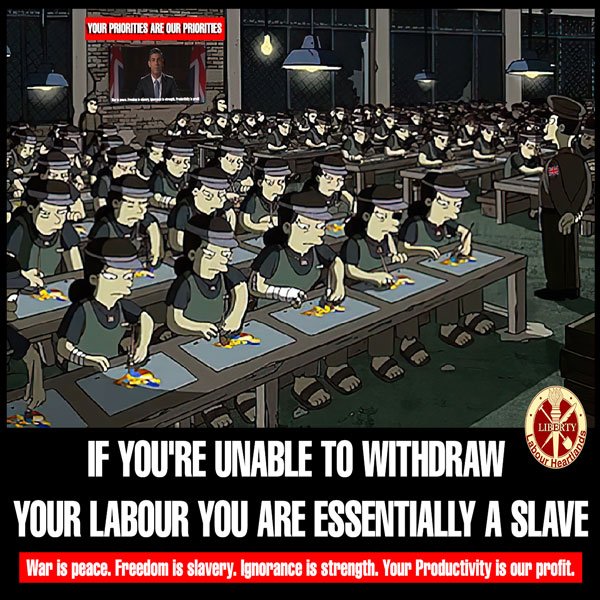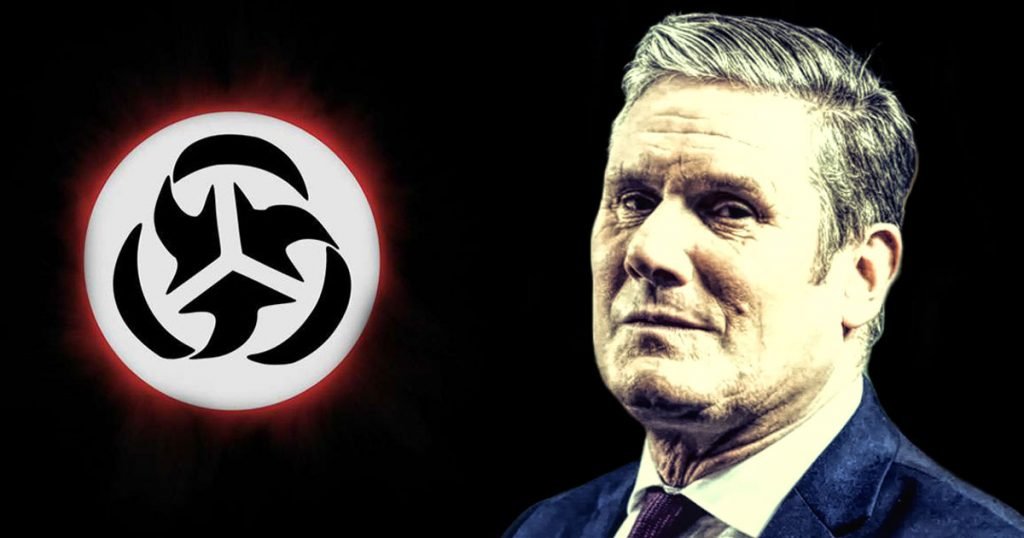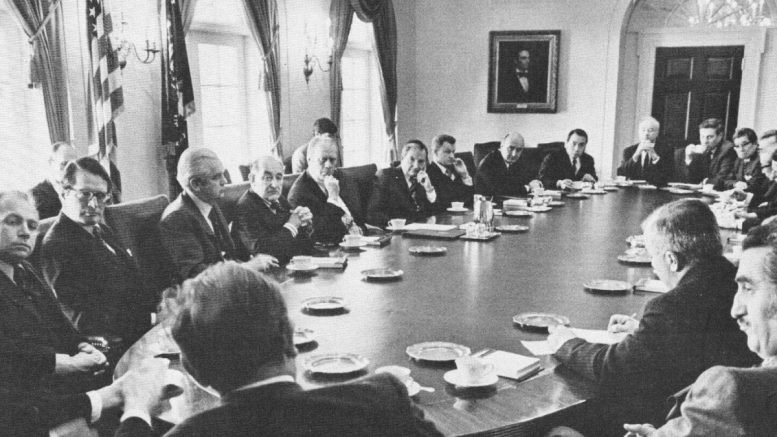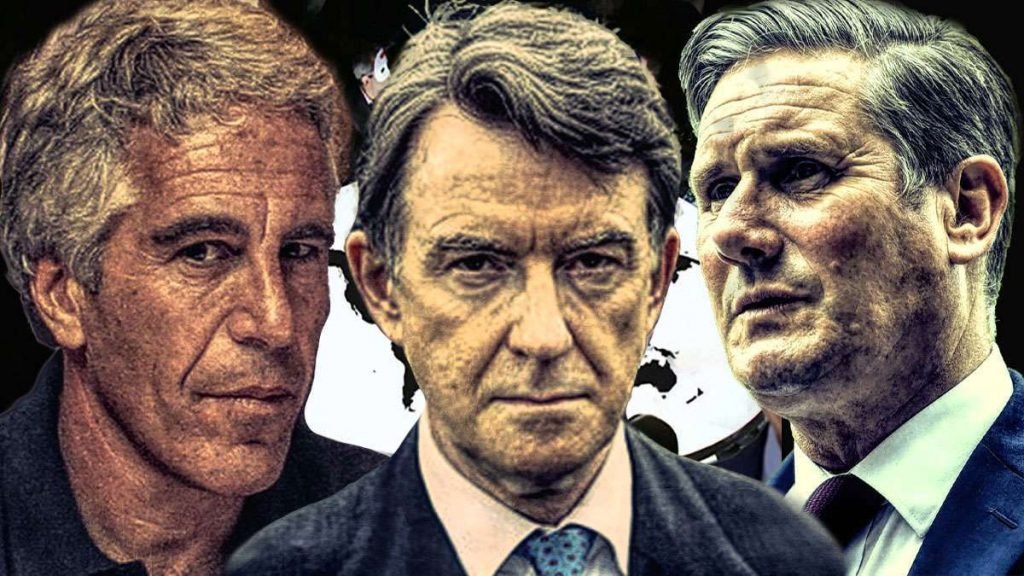Sunday long read.
The Purpose of the World Economic Forum
You may have heard of the World Economic Forum (WEF). It proclaims itself as an event where global business and political leaders come together to discuss the most pressing issues facing our world, a think tank of the elite working for the common good…
They go on to state The World Economic Forum brings together decision-makers from across society to work on projects and initiatives that make a real difference. Claiming: “Through collaboration between stakeholders with varied perspectives, our projects deliver concrete and sustainable results and make a positive impact at all levels of society.
On the other hand, some see the WEF, not as a force for good, but as something far more sinister.
Pulling back the curtains there is a different world. The WEF has a long history of being closely connected to the globalist agenda. Many of its members are high-ranking politicians and businesspeople who support neoliberalism and globalisation.
As they claim, The World Economic Forum may be a prestigious annual event where global business and political leaders are acting for the common good. but whose common good, that’s the question!
The majority of participants are not representing the people or the workers but the oligarchy and their agents, Where it is true they come together to discuss the most pressing issues facing our world, the part they miss is how they discuss those issues working to exploit them for their own agenda, power and profit.
It was The Great Reset that sent the internet ablaze as – Professor Klaus Schwab, Founder and Executive Chairman of, the World Economic Forum declared the covid an opportunity. he suggested “The pandemic represents a rare but narrow window of opportunity to reflect, reimagine, and reset our world”
What’s true is that reimagining manifested itself in the oligarchies taking advantage and opportunity to steal from governments and the public purse, with billions going missing and not even pursued.
Of course, it is always a conspiracy if we talk about such organisations in this way.
And of course, to remain silent on such issues is exactly what they want, and exactly why they claim it’s all a conspiracy.
However, no matter the slurs you get for publishing, it really should be pointed out unequivocally, that what goes on at Davos has deep implications for all of us, both economically and within what’s left of our democracy and are most certainly it’s not for our common good.
As you can see, the main purpose of the World Economic Forum is to operate as a schmoozing forum for globalisation’s oligarchical Mafiocracy. The agenda is an antidemocratic elitist position, pushed by the political agents of the oligarchy. This agenda is an attack on the working class, and effectively a road to serfdom. Globalists have little need for national loyalty and view national boundaries as obstacles. They only consider national governments useful functions to facilitate their global operations, to lawfully protect their ownership, and administer through legislation economic conditions to function in.
This is by no means a form of internationalism and the end of nation-states, this is globalisation that will use the governments to manage the people and commodify each individual, valuing their worth in their productivity.
The World Economic Forum is where it all comes together, where globalists and political operatives meet to broker deals that further globalisation’s oligarchical goals.
What Is the Globalists’ Agenda?

The new globalists and the history behind it.
In the late-1960s, George Ball became the principal spokesperson for a group of fellow businesspeople who were strong supporters of globalisation. Like Ball, they saw globalisation faltering along with a few friends among the political elite, referred to by the New York Times as the ‘New Globalists,’ they decided that they needed to take a direct role in promoting globalisation. Otherwise, they feared that the postwar order might falter.
Ball argued that global markets needed to be freed from the ‘ceaseless interference from its puzzled parent, the sovereign state,’ and so the New Globalists worked to promote the sovereignty of the markets as the foundation of globalisation. Deciding that the New Globalists needed a formal platforms to promote their ideas, Klaus Schwab founded the World Economic Forum, and David Rockefeller created the Trilateral Commission. These business organisations successfully co-opted members of the political elite, and together they have formed an engine room for policies, partnerships and programmes to extend the boundaries of market-led globalisation.
Samuel Huntington, a highly regarded political theorist, observes that this detached elite “have little need for national loyalty, view national boundaries as obstacles, and see national governments as residues from the past whose only useful function is to facilitate the élite’s global operations”. This capital internationalist agenda is a minority elitist position, not the endorsed internationalism of the people. The discussions ostensibly centred around pressing global concerns, but in reality, the World Economic Forum’s prime purpose is to operate as a schmoozing forum for globalization’s oligarchical Mafiocracy. They serve their own financial interests.
They view national governments only as useful functions to facilitate global operations.
The Globalists’ agenda is an antidemocratic elitist position, pushed by the political agents of the oligarchy, members of parliament and their civil services, who work a revolving door in and out of politics, banking and the boardroom.
Their aim is complete control of global markets and to exert market forces as an economic weapon wherever they feel leverage for one reason or another is needed.
If you are wondering who is the oligarchy, then look at the Davos guest list, Look at the business we use every day from the big six supermarkets to Amazon, Google and Microsoft, all reaping in profits but paying little to no tax in the countries of operation. If you are still unsure look at your Energy bills and who their biggest shareholders are.
So, what’s Sir Keir Starmer got to do with all this and who are the Trilateral Commission?

Sir Keir Rodney Starmer KCB KC is a British politician and barrister who has served as Leader of the Opposition and Leader of the Labour Party since 2020. He has been a Member of Parliament (MP) for Holborn and St Pancras since 2015. He was previously Director of Public Prosecutions from 2008 to 2013 and is now a Trilateral Commission member.
Under Starmer’s tenure the Labour Party has become a centre-right party, it no longer advocates a democratic socialist agenda of internationalism and emancipation of the working class. Instead, it offers a partnership of business and globalisation, one that will take workers down the road to serfdom. Where every facet of their lives is commodified. Where people are valued only by their ability to add to their allocated sphere of production.
Remarkably, the potential future Prime Minister told former BBC journalist Emily Maitlis at the conference that he prefers Davos to Westminster, saying that the seat of power in London is “too constrained”. “It’s closed and we are not having meaning… once you get out of Westminster, whether it’s Davos or anywhere else, you actually engage with people that you can see working with in the future. Westminster is just a tribal, shouting place,” the Labour leader said.
His preference for globalisation is seen as he advocates for a partnership with businesses while moving the Labour party distinctly away from the workers and the unions that it was created to represent. His tweet from Davos states:
The Labour Party will attract global investors to drive our economy forwards. We will decarbonise the economy, create good jobs, boost energy security and make the UK a world leader in the climate transition. Brilliant to be in Davos with @RachelReevesMP to set out our plan.
The Labour Party will attract global investors to drive our economy forwards.
— Keir Starmer (@Keir_Starmer) January 19, 2023
We will decarbonise the economy, create good jobs, boost energy security and make the UK a world leader in the climate transition.
Brilliant to be in Davos with @RachelReevesMP to set out our plan. pic.twitter.com/ufzjd1lWuV
In contrast, the former leader of the Labour Party tweeted: “As billionaires meet atop their mountain in Davos, 800 million people across the globe are going to bed hungry. It’s time for a new economic model that redistributes wealth, ownership and power from those who wield it to those who need it.
As billionaires meet atop their mountain in Davos, 800 million people across the globe are going to bed hungry.
— Jeremy Corbyn (@jeremycorbyn) January 19, 2023
It’s time for a new economic model that redistributes wealth, ownership and power from those who wield it to those who need it.
Beware the Trilateral Commission.
Starmer is a member of that other Globalists’ elitist club ‘the Trilateral commission’ an organisation that like the WEF pushes a globalist agenda. We have published many articles on the subject but for those new readers, in brief, the Trilateral Commission was formed in 1973 by David Rockafella.
Both organisations came about after a group of millionaires saw globalisation faltering in the late-1960s, George Ball became the principal spokesperson for that group of fellow businesspeople who were strong supporters of globalisation. Ball, with a few friends among the political elite, were Referred to by the New York Times as the ‘New Globalists,’ they decided that they needed to take a direct role in promoting globalisation. Otherwise, they feared that the postwar order might falter.
Ball argued that global markets needed to be freed from the ‘ceaseless interference from its puzzled parent, the sovereign state,’ and so the New Globalists worked to promote the sovereignty of the markets as the foundation of globalisation.
Deciding that the New Globalists needed formal platforms to promote their ideas, Klaus Schwab founded The World Economic Forum, and David Rockefeller created the Trilateral Commission, These organisations successfully co-opted members of the political elite, and together they have formed an engine room for policies, partnerships and programmes to extend the boundaries of market-led globalisation.
The Trilateral Commission became an organisation for leaders from the world’s three economic superpowers: North America, Europe, and Asia. its goal is to promote free trade and global integration.
That may all sound like a noble idea until you drill down a little.

The commission garnered much controversy over its existence. Detractors cite the levels of influence some commission members wield in politics and their associations with government entities as reasons to question the commission’s activities. Critics say this influence helps the commission prop up the world’s financial and political elite rather than the best interests of the general public.
Holly Sklar in her book on Trilateralism, says the purpose of Trilateralism is to protect the power of the international ruling class “whose locus of power is the global corporation”; to co-opt the Third World, and to reintegrate communist countries.
The Commission’s purpose is to engineer an enduring partnership among the ruling classes of North America, Western Europe, and Japan—hence the term “trilateral”—in order to safeguard the interests of Western capitalism in an explosive world.
Noam Chomsky says the Trilateral commission’s aim is to bring about a ‘moderation in democracy’ to allow only the elite to vote. No matter where your politics sit, this is a backwards step in democracy and the working class movement for emancipation.
This is the elites advocating a shareholder society, where those with the biggest share in society are in their eyes the ones with the most to lose in terms of wealth, land and power and that is why they should be the only ones to have a say in our society. This is a return to a feudal system worldwide controlled by the Trilateral Commission.
The Crisis of Democracy: On the Governability of Democracies.
Chomsky criticised the commission declaring its aims ‘undemocratic’, pointing to its publication ‘The Crisis of Democracy, which describes strong populist interest in politics during the 1970s as an “excess of democracy”.
In layman’s terms the civil rights movement, the Unions in the UK and the up-and-coming democratic movements around the world were dangerous to globalisation, corporations and the oligarchy. Much like we see today…
The crisis of democracy is, there’s too much democracy!
The Trilateral Commission has issued only one major book-length report, namely, The Crisis of Democracy: On the Governability of Democracies (Michel Crozier, Samuel Huntington, and Joji Watanuki, 1975). The Commission’s report is concerned with the “governability of the democracies.”
This report sits on the website of the Trilateral Commission as its only manifesto, a report that in a nutshell says the problem with the world is there is too much democracy.
The report argues that what is needed in the industrial democracies “is a greater degree of moderation in democracy” to overcome the “excess of democracy” of the past decade. “The effective operation of a democratic political system usually requires some measure of apathy and noninvolvement on the part of some individuals and groups.”
Chomsky described it as one of the most interesting and insightful books showing the modern democratic system is not to be a democracy at all but a system of control by elites, and the oligarchy.
The report observed the political state of the United States, Europe and Japan, and says that in the United States the problems of governance “stem from an excess of democracy” and thus advocates “to restore the prestige and authority of central government institutions.” The report serves as an important point of reference for studies focusing on the contemporary crisis of democracies.
The commission claimed Unions, fighting for workers’ rights, left-wing lectures in universities and collages and civil rights activists were all stopping the flow of commerce and therefore hindering their globalist agenda.
Sir Keir Starmer’s views on democracy are very much inline with those of his fellow members of the trilateral commission. These are a world away from his original pledges of grassroots democracy and the manifesto he stood on to be elected, that of Labour’s foundation stone in building a society for the many, not the few, again Trilatrilist believe that the crisis of democracy, is in fact, that the people have too much democracy.
Lively discussion this morning @ Trilateral Commission. Different points of view is an understatement: different visions for Britain! https://t.co/4kVl9HIDbv
— Keir Starmer (@Keir_Starmer) November 4, 2017
While ever we have Sir Keir Starmer a member of the Trilateral Commission and agent of the oligarchy, he will have the power and support as the Leader of the Labour Party to march us down that road to serfdom in double quick time, all while the Party faithful cheer on our progress, right to the point of losing all the rights we gained from our thousand-year common struggle from the Magna Carta to suffrage. Of course, we will be doing this all in the name of economic progress and for the majority, we will be forced along just so we can pay our energy bills…
You can see Keir Starmer’s Trilateral commission membership as the embodiment of globalists who have little need for national loyalty and view national boundaries as obstacles. This is by no means internationalism this is globalisation. People are to be managed not governed or represented.

We understand that the elites pushing their own political agenda have little need for national loyalty and view national boundaries as obstacles, they have no belonging or attachment.
The only useful function they see for national governments is to facilitate the oligarchy’s global operations. This antidemocratic elitist position, pushed by the political agents of the oligarchy, is precisely what Keir Starmer, a Trilateral commission member, stands for.
The national government’s purpose is no longer to represent the people but to facilitate the market and the globalist agenda.
This is an attack on the working class a road to serfdom
The Davos crowd spearheaded by the World Economic Forum promotes crony capitalism, corporate monopolies, and free market fundamentalism. Corporate entities happily partner with government institutions, enriching themselves from mandates, regulations, and grants that mainly benefit the elites this is merely a form of corporate welfare.
They see national governments as only useful functions to facilitate elitist global operations. This agenda is an antidemocratic elitist position, pushed by the political agents of the oligarchy. The World Economic Forum has as its prime purpose to operate as a schmoozing forum for globalisation’s oligarchical Mafiocracy.
Under the guise of free trade, countries are expected to accept entry of foreign goods and services for their domestic markets regardless of the damage inflicted on local producers. Although the World Trade Organisation binds countries to the rules of free trade, it fails to address subsidies, tariffs, and non-tariff barriers. This creates an uneven playing field, especially for developing countries and small businesses, while multinational corporations find ways to maximise their profits by exploiting the situation.
This “race to the bottom” is a mechanism which concentrates capital in fewer hands and forces individuals and businesses to compete in a precarious environment. Vulnerable populations, including the working class, struggle with diminishing rights and lack of access to resources. And when they can’t cope, they are no longer able to contribute to the market and instead become dependent on governments. In essence, this is an attack on the working class leading to a road to serfdom.
This is an attack on the working class, destroying well-paid jobs and creating a downward spiral of poverty, inequality and insecurity that will lead ultimately to serfdom.
The Labour Party is in the grip of the iron law of oligarchy.
The Crisis of Democracy: Sir Keir Starmer and the Trilateral Commission
Sir Keir Starmer: The Trilateral Commission and Jeffrey Epstein
Who is ‘Mandelson’ and how are they all connected
Help Us Sustain Ad-Free Journalism
Sorry, I Need To Put Out the Begging Bowl
Independent Journalism Needs You
Our unwavering dedication is to provide you with unbiased news, diverse perspectives, and insightful opinions. We're on a mission to ensure that those in positions of power are held accountable for their actions, but we can't do it alone. Labour Heartlands is primarily funded by me, Paul Knaggs, and by the generous contributions of readers like you. Your donations keep us going and help us uphold the principles of independent journalism. Join us in our quest for truth, transparency, and accountability – donate today and be a part of our mission!
Like everyone else, we're facing challenges, and we need your help to stay online and continue providing crucial journalism. Every contribution, no matter how small, goes a long way in helping us thrive. By becoming one of our donors, you become a vital part of our mission to uncover the truth and uphold the values of democracy.
While we maintain our independence from political affiliations, we stand united against corruption, injustice, and the erosion of free speech, truth, and democracy. We believe in the power of accurate information in a democracy, and we consider facts non-negotiable.
Your support, no matter the amount, can make a significant impact. Together, we can make a difference and continue our journey toward a more informed and just society.
Thank you for supporting Labour Heartlands












